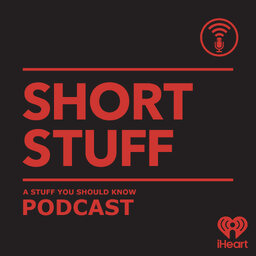How Charles Darwin Worked
Charles Darwin wasn't the first or only scientist to grasp the theory of evolution through natural selection, but he became its father and icon. Learn about the man who reluctantly but bravely became the source of the divide between religion and science.
Learn more about your ad-choices at https://www.iheartpodcastnetwork.com
 Stuff You Should Know
Stuff You Should Know


